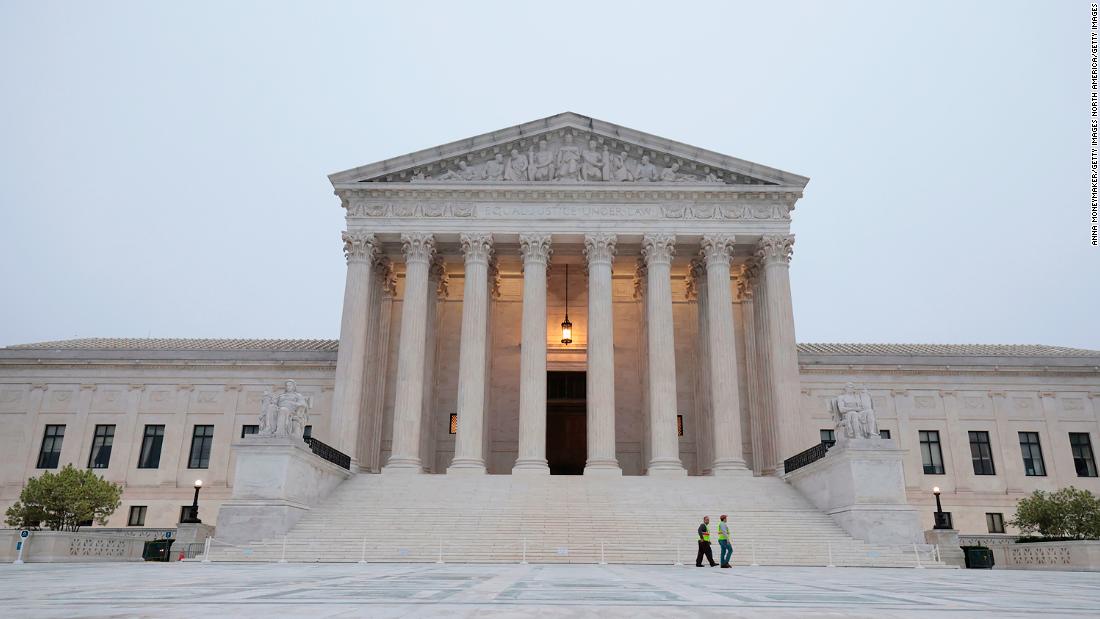“Really what the Supreme Court is limiting here are creative and expansive interpretations of the law,” said Nathan Arnold, senior policy adviser at EducationCounsel, a consulting firm in Washington, DC. Previously, he worked for eight years at the Department of Education during the Obama and Trump administrations, serving as Chief of Staff to the Acting Undersecretary and Senior Policy Advisor in the Office of Post-Secondary Education.
Arnold said he thinks the Supreme Court’s recent decision in the EPA case makes it clear that federal agencies “have a new hurdle to jump” before taking certain action.
“I wouldn’t be surprised if this decision impacts their calculation on the loan forgiveness issue,” Arnold added, referring to Biden administration lawyers.
Recent Supreme Court rulings speak out against aggressive agency actions
In the recent EPA case, the Supreme Court was reviewing an Obama-era climate rule (never adopted by the Biden administration) that relied on a 1970 provision of the Clean Air Act. The conservative majority said the rule exceeded the authority granted to the EPA under the law, with the court explicitly citing what is known as the “major issues doctrine.”
In previous cases this term, the Supreme Court’s conservative majority rejected the agency’s regulatory authority claims because, in the court’s view, it was a matter of great economic and political importance – and the justices concluded that Congress had not clearly given the agency the power of sweeping authority over the matter.
Never had the Supreme Court used the major issues doctrine so candidly as it did in this year’s climate change case, citing it by name for the first time in a formal majority opinion.
Previously, in a case where the court blocked the administration’s eviction moratorium, the court wrote in August, “We expect Congress to speak clearly when authorizing an agency to exercise powers of vast ‘economic and political importance’”. of the unsigned order.)
The court used similar language in January, when the Tory bloc ruled against the Biden administration’s vaccination mandate for large employers.
What the law says about canceling a student loan
Executive Action Ordering Secretary of Education to Broadly Forgive Federal Student Loan Debt would be unprecedented – and therefore, whether Congress has clearly given the executive the power to do so has yet to be tested in court.
Biden initially urged Congress to take action to rescind the student debt, rather than wading through murky legal territory himself. But Democrats Probably Don’t having the votes to pass a bill canceling student debt in the Senate despite support from key party members, including Senate Majority Leader Chuck Schumer and Massachusetts Sen. Elizabeth Warren.
Last year, Biden asked attorneys for the Departments of Education and Justice to assess whether he, in fact, had the authority to write off federal student loan debt broadly. The administration did not disclose those findings.
But if the major issues doctrine comes into play, courts can find that if Congress had intended the authority to be used in such a sweeping way as to largely cancel student loan debt, it would have said so more clearly in the law.
Two of the authors of the note sent to Warren were unavailable to comment on this story. The third author, Toby Merrill, has since joined the Department of Education as Deputy General Counsel and referred CNN to the Department’s spokesperson.
Luke Herrine, an assistant professor of law at the University of Alabama who previously worked on a legal strategy for student debt forgiveness, also said he believes Congress has given the Department of ‘multiple powers to cancel student debt’.
But given recent Supreme Court rulings, Herrine could see the current justices overturn an executive branch action to do so broadly. Traditionally, the courts defer to the federal agency when questions arise regarding ambiguous legislation. But there has been a change.
“To me, the courts are basically saying, ‘We’re going to have the first say,’” Herrine said.
Another factor that may come into play is that the Department of Education has used very little power to cancel student debt to date. He almost never used power until the Obama administration came under pressure from activists like the Debt Collective — where Herrine previously worked — to write off the debt of borrowers who were defrauded by for-profit colleges. , under a rule known as the borrower’s defense to repayment. .
A long road to the Supreme Court
Even if Biden decides to largely forgive federal student debt, that doesn’t mean a lawsuit would be filed or the case would eventually go to the Supreme Court.
First, it is unclear who would have standing to sue, a procedural threshold requiring that an injury have been inflicted on a plaintiff warranting trial. It’s unlikely to be a borrower who doesn’t qualify for the rebate, but it could be a student loan officer or collection agency, according to Arnold, who has also stated that generally anyone who loses money as a direct result of the cancellation may have standing. .
If the permanent hurdle is removed, the case will first be heard in a district court – which may or may not issue a preliminary injunction to prevent the reversal from occurring before a final decision is made on the merits. of the hypothetical case.
Proceedings would then likely go to an appeals court, which could have the final say, given the small portion of cases the Supreme Court takes up.
But if the Biden administration cancels student debt through executive action and that decision is challenged, lower court judges will consider what the Supreme Court has said in its previous cases about the agency’s power during evaluation of the authority of the Ministry of Education.

